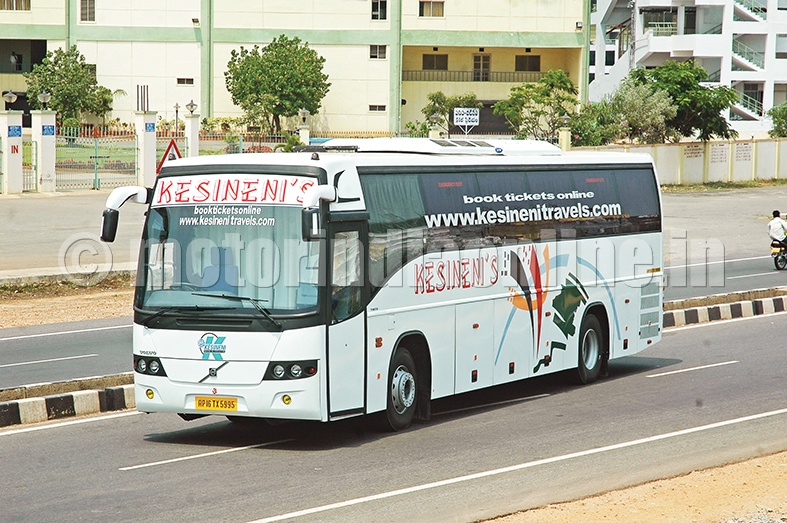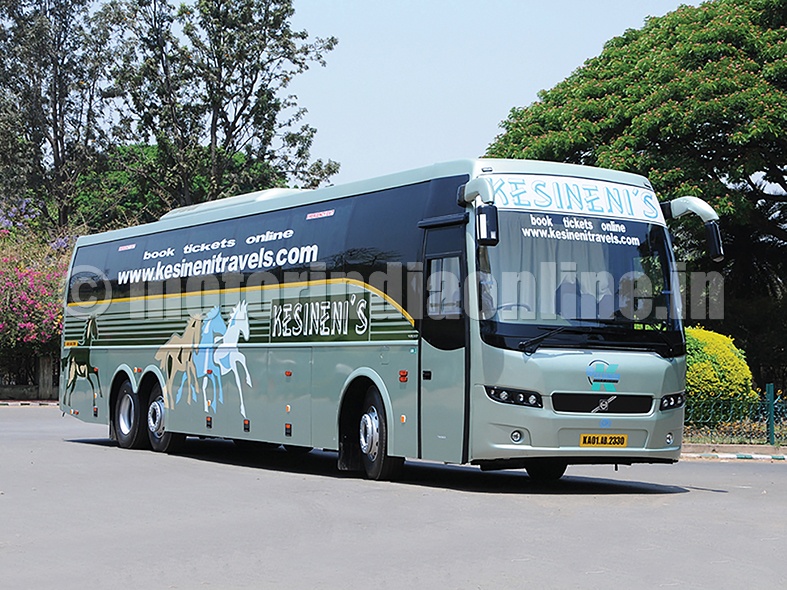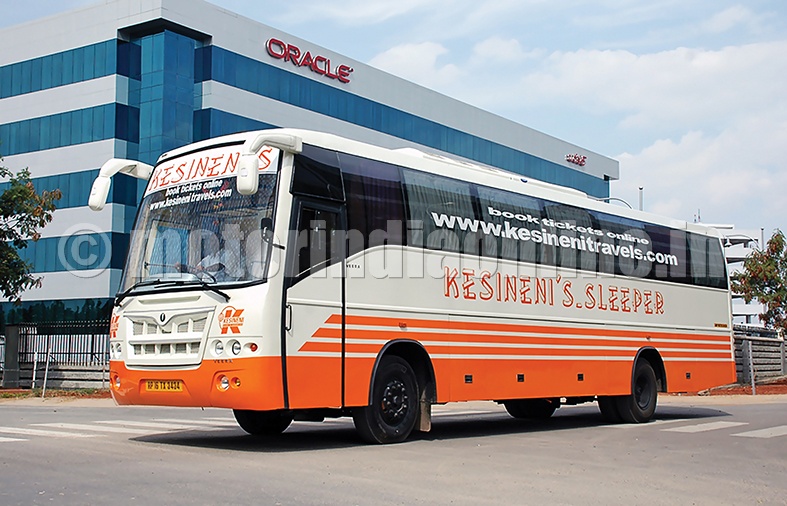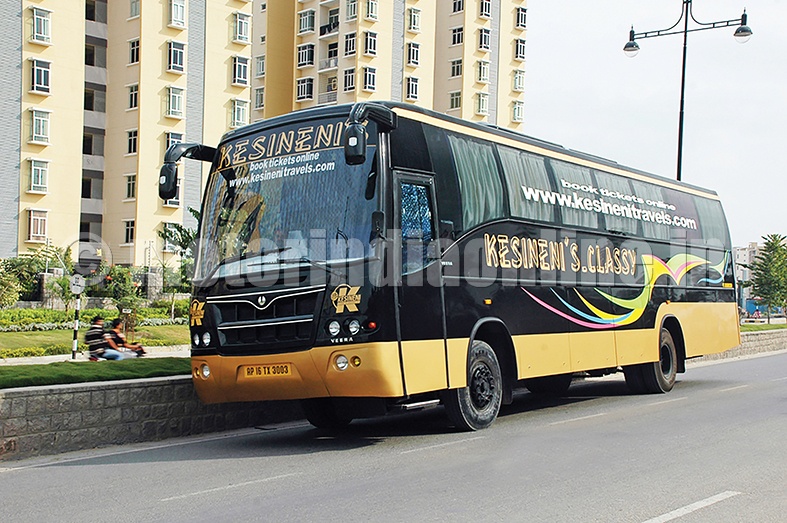Kesineni Tours and Travels is the largest inter-city bus operator in Andhra Pradesh and also one of the largest in the field across India. The company has its operations spread across Tamil Nadu, Karnataka, Andhra Pradesh, Telangana, Gujarat, Maharashtra, Pondicherry and Goa.
Kesineni is known for its ultra-long routes, many of which it was the first to introduce as part of its attempt to redefine long-distance bus travel in the country. Hyderabad – Coimbatore was one the first long-distance routes commenced in 2010, and now the operator’s longest route is Hyderabad – Nagerkoil covering a distance of 1,245 km. With 662 schedules every day, a fleet of 120 buses covering 54,000 km and carrying not less than 13 lakh passengers annually, Kesineni is undoubtedly among the most reputed private bus operators in the country today.
After the company founder, Mr. Srinivas Kesineni, became an MP, his daughter, Ms. Hyma Kesineni, has been handling all the operations as Director of the firm. We spoke to her about her new role, vision to grow the company and lots more.
Excerpts:
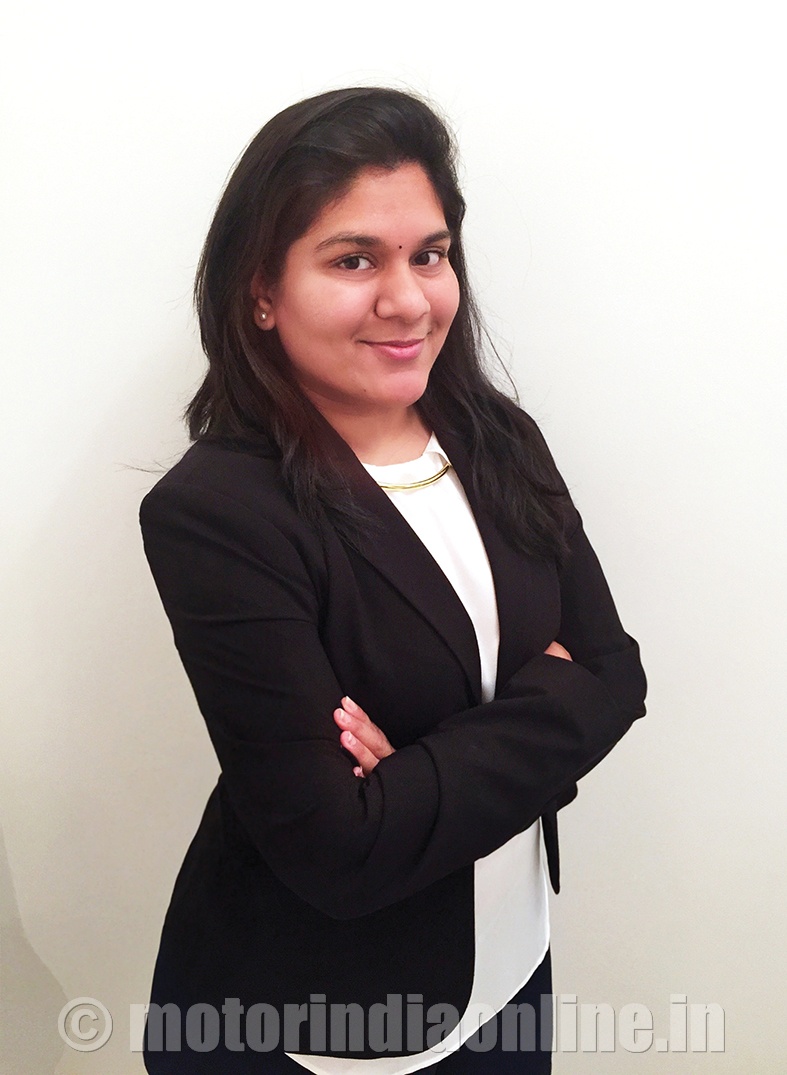
To start with, please take us through the journey of your company and how you have grown over the years.
One of the first bus operators in the country, my great grandfather, the late Sri Kesineni Venkaiah, started operations in 1928 using coal/steam engine buses in the British regime. It wasn’t until 1992 that Kesineni Travels, as it is known today, was reshaped by my father, Mr. Srinivas Kesineni, fondly called Nani.
I proudly represent 87 years of legacy, and the fourth generation of sweat and blood that goes into Kesineni, and am grateful to be carrying it forward.
Being one of the top inter-city bus operators in the country, we pioneer in providing highest quality of service possible, be it through a well-maintained fleet or great attention to customer service. Our strategy and vision set us apart, and ensure that we remain industry leaders.
We were one of the first to start ultra-long routes like Hyderabad to Cochin and Hyderabad to Coimbatore and continue to set new trends for others to follow.
What is your current fleet size?
We have a 100 per cent AC fleet with a fleet strength of 120 buses at present. It consists of a combination of Volvo and Ashok Leyland buses. We are in the process of moving towards a 100 per cent Volvo fleet. Apart from this, Kesineni Cargo owns 60 trucks as part of the premium integrated cargo and logistics company.
What facilities do you have in place for fleet maintenance?
We are in the business of providing the best possible service to our customers. For this, fleet maintenance is extremely crucial. We are the first company in the industry to be implementing an all-inclusive fleet management and maintenance software to ensure our fleet is of top quality.
Earlier we used to do all the maintenance work in-house, but are now moving towards outsourcing maintenance operations to Volvo which has a wide network and can help us fix any issues that occur en route. This helps us focus on growth and expansion, entrusting the experts to maintain our vehicles.
How strong is your network of offices across the country?
We currently operate through 3 mediums – aggregators, franchisee partners and Kesineni branch offices. Most of the ticket booking takes place online these days, and there is no need for brick and mortar stores for ticket sales.
Earlier our offices had large lounges with comfortable sofas for passengers, but now we are reducing the size of offices since they have become just boarding points.
All our buses are GPS-enabled, and our passengers know exactly when the buses would arrive, so they come right on time instead of coming early and waiting.
Do you have any new developments on the operation front? Brief us on the streamlining measures you have undertaken.
One of the most important initiatives we’ve taken is to automate fleet management and maintenance. We are systemizing all the processes in the workshops related to regular maintenance and cleanliness.
For example, our fleet management staff have mobile tablets which display a checklist of all the items to be checked in a bus every morning when it enters the workshop after making a trip. This checklist with all the components that need fixing will be sent to the maintenance team, repairs team, and housekeeping team. They will then check these lists and work accordingly. Once it is done, the fleet management staff go through each issue again and ensure that it has been fixed.
This is an example of a common process that everyone in the industry follows, but it is just common knowledge, and its never been documented and automated to the extent that your employees don’t have a chance to forget to do something. Our strategy is to make operations fool proof, leave as little scope for human error as possible.
We are also going through a lot of preventive maintenance measures to improve overall fleet quality and avoid breakdowns en route. This means, we periodically check every part of the vehicle, right from clutch discs to tire tread depth. The ultimate goal is better customer service.
You seem to be very choosy when it comes to vehicle brand and product selection for your fleet. Why is this so?
We tend to be very loyal customers. We constantly try new things that create a buzz in the international market, but will never fully adopt them until they are tried and tested in Indian road and climatic conditions. Customer safety is of utmost concern, which is why we are a little precautious.
In addition, we believe it is always better to work with a limited number of vendors to get the best service so long as their product is of high quality. Earlier the strategy in the industry was to offer options to customers, but we have decided that we want quality and customer safety rather than make it a numbers game with more choice.
Currently our preferred manufacturer is Volvo. They meet most of our criteria when it comes to an ideal fleet. The average age of our fleet is approximately just around six years and we are very happy with the way the vehicles are performing.
From a technology perspective, what are Kesineni’s unique offerings?
We have the largest number of new generation buses like the Volvo B11R, with around 14 of them in our fleet, which is the highest compared to any transporter in the country. In addition, we are in the process of 100 per cent automation of operations.
All our buses are GPS-enabled and passengers receive updates on the location of the buses and are informed in case of a delay in arrival.
Our fleet is speed-locked as per regulations, and this ensures customer safety. Such practices mainly account for our remaining the industry leader to this day, with utmost customer loyalty.
Our use of Automated Manual Transmissions (AMT) largely reduces driver fatigue. We are currently researching and experimenting on alloy wheels and have got good feedback in terms of improved comfort level and increased tyre life.
Have you done any trials using alternative fuels?
We have gone through a couple of trials using bio diesel, but since they are yet to be certified by manufactures we have not gone into implementation. We will only consider this a viable option if and when it gets certified and manufacturers are willing to recommend it.
What are the factors you take into consideration while planning a new route?
New routes are actually considered based on feedback from passengers. Our working process covers areas such as business potential & viability, service network to ensure service in case of breakdowns, road conditions, preferred route and alternative routes, pick-up/drop-off locations, chances for bathroom breaks, local restrictions on entry into city, and customer suggestions and views.
We personally drive the route multiple times before starting a new route to ensure that both driving and road conditions are safe, and check for any obstacles or security concerns.
How do you train your drivers to operate on new routes?
We pair drivers based on the experience and knowledge of routes. The combination of a young driver and an experienced driver helps us ensure quality as well as training for future driver supply.
Drivers tend to get passionate and comfortable with their preferred routes. Comfort can sometimes be dangerous. Therefore, we switch routes occasionally to ensure drivers are kept in check.
How has the Andhra Pradesh-Telangana split affected your operations and what are your comments on the high inter-State taxes levied on operators?
The impact is two-fold, and slightly overlapping – taxation has increased and the operating radius has decreased.
For example, the Vijayawada-Hyderabad route used to be within the same State. But, after bifurcation, it is in two different States. Therefore now there is an additional tax of about Rs. 3,750 per seat per quarter. This would add up to Rs. 7.8 lakhs per bus per year. It’s not a negligible amount when this change is impacting nearly 300 of our schedules everyday!
Additionally, the operating radius in Andhra Pradesh has reduced from 1,500 km to about 350 km, as a result of which our margins might take a hit.
The numbers just don’t work out! All said and done, we decided to be prepared for the worst, while remaining optimistic about the future.
How often do you take passenger feedback and how do you maintain your connect with them?
It actually takes place 24/7! Our system randomly picks a list of five passengers who travel in each of our buses and these customers receive calls from our customer care to proactively take their feedback. This system has been in use for years and has worked very well. Most of the feedback has been positive and the customer suggestions have definitely helped us grow a lot.
Any diversification plan coming up at Kesineni?
Perfect timing! We are just entering a new vertical, Kesineni Tours. Our customers know they can always think of us during their family functions, reunions, or any and all get-togethers that involve travelling. Thanks to this loyalty and demand, we are entering into an integrated chartered travel service business. Our dedicated fleet will include end-to-end travel planning and high-end options in buses, such as fully reclining seats, toilets and pantries. So it will be a kind of a complete holiday-maker for the passengers.
Broadly speaking, we are extremely passionate about the travel industry and are interested in anything related to the business.
Kesineni Stats
- Founded in 1928 – first bus service in Andhra Pradesh with coal buses
- Kesineni Travels officially started in 1992
- Longest route operated at present:
- Hyderabad to Nagercoil (1245 km)
- Distance covered everyday: 54,000 km
- Passengers carried daily: 3,500
- Schedules per day: 662
- Workforce: 1250 in total (600 directly & 650 indirectly through franchises & aggregation)
